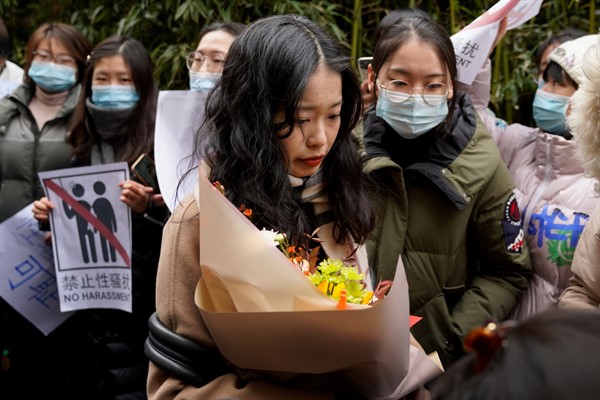Editor’s Note: China Note is being published on Thursday this week, but will be back to its usual Wednesday schedule next week. Subscribers can adjust their newsletter settings to receive China Note by email every week.
Last week, 27-year-old Zhou Xiaoxuan headed to Haidian District People’s Court in Beijing to have her case of sexual harassment heard. The defendant, Zhu Jun, a TV star in China, didn’t turn up for the trial. But around 100 supporters and friends were there, waiting outside in the chilly weather. They carried posters saying “#MeToo,” and other slogans like “Go Xianzi,” referring to Zhou’s nickname. Police were there, too, asking people to put down their posters and even forcibly removing a Reuters journalist.
It has been over two years since Xianzi wrote a detailed post online that went viral on Chinese social media. When she was working as an intern for state broadcaster China Central Television in 2014, she delivered fruit to Zhu’s dressing room one day. She alleges that he told her how important he was, then proceeded to grope her underneath her dress. Xianzi reported the case to the police but was told that pursuing it might affect her parents’ employment—her father is a civil servant, her mother an employee at a state-owned enterprise.

